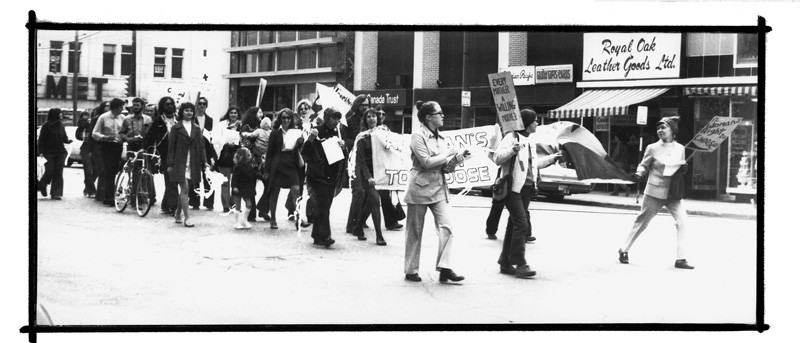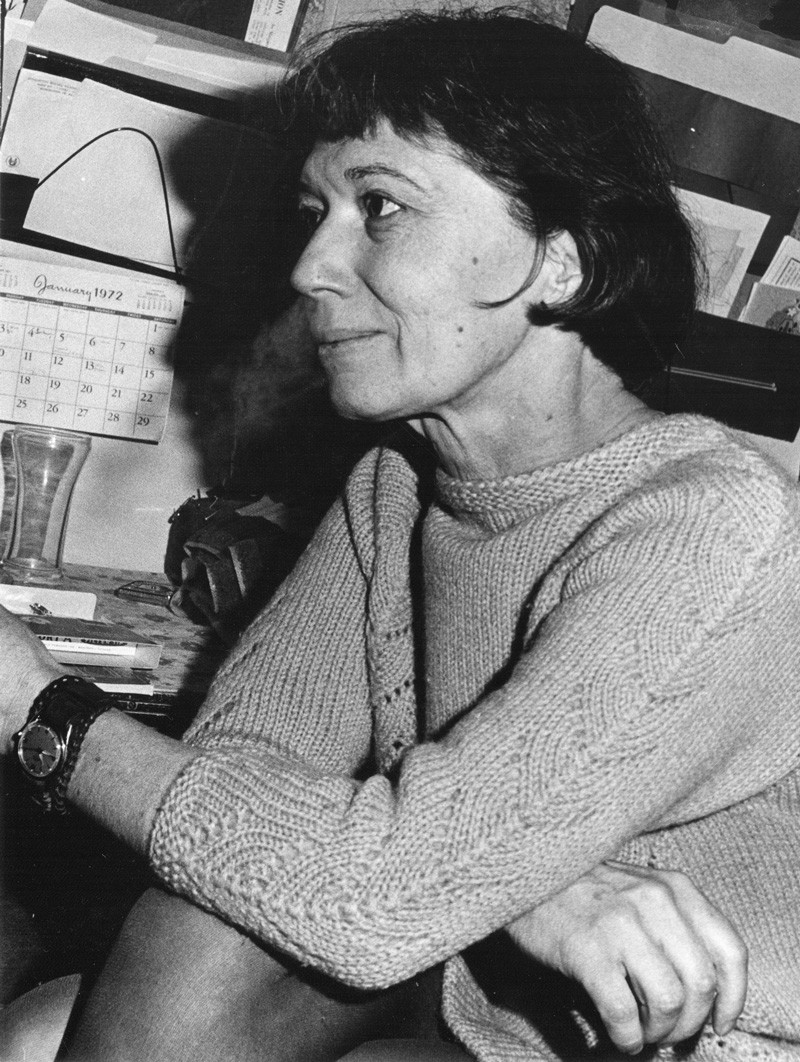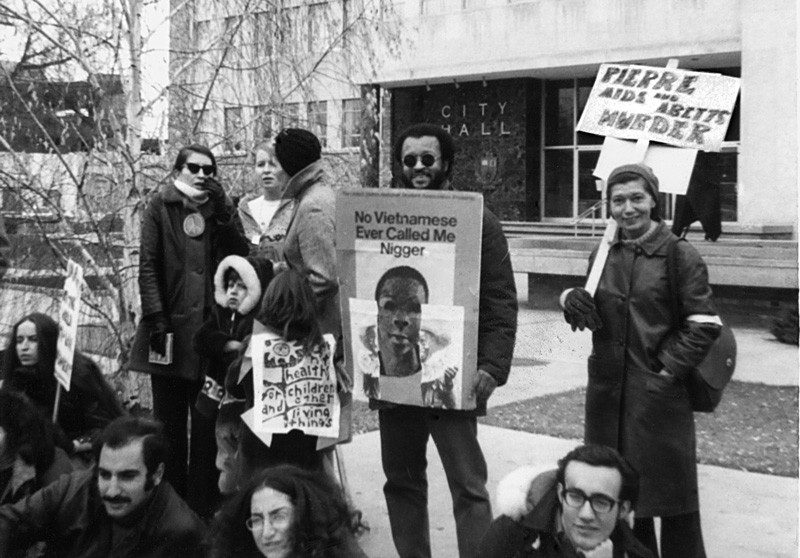
Briarpatch’s founding editor, Maria Fischer, died peacefully in her home in Ladysmith, B.C. on October 3, 2007, at the age of 87. At her memorial service on October 13, Heidi Rose and Ulrich Fischer described their mother as a feisty and tenacious woman who was a lifelong believer in social justice and worker solidarity.
Maria grew up in Bavaria, in southern Germany, and immigrated to Canada with her husband and two young children in 1953. They settled in Lloydminster, Alberta, where she and her husband struggled to support their family by working at various low-paying jobs. It was at this time that Maria was introduced to socialist ideas, and by the 1960s she had become active in the anti-war movement. After her marriage ended and her children were grown, Maria moved to Saskatoon where she continued her political work. This work included anti-war activities and support for women’s rights and Quebec independence. She also strongly supported Métis and First Nations peoples in their struggles.
In the fall of 1973, Maria and two other members of an unemployed citizens group started a newsletter to link anti-poverty groups around the province—they called the newsletter Notes from the Briar Patch. Maria brought to this endeavour her own experience of being out of work and on welfare, having to fight the welfare department for meagre benefits. Five hundred copies of the first issue were mailed out to anti-poverty groups and placed in social services offices and legal aid clinics. The front page featured a drawing of stick figures joined together by outstretched arms, symbolizing the strength and support that is found in unity. Poor people were invited to share, in their own words, their struggle for a better life.
The response was immediate. People around the province embraced Notes from the Briar Patch, now Briarpatch Magazine, and it soon became a voice for everyone who struggled against injustice.
Maria believed that people had the ability to change their lives if they were given access to the right kind of information. Later, in her position as a project officer with Social Services in Yorkton, Saskatchewan, she continued to link people up with what they needed, whether it was educational opportunities or jobs.


To be closer to her granddaughter Marissa as she was growing up, Maria moved to Ladysmith in 1986. She loved her island home with its views of the ocean and mountains, and spent many happy hours exploring its surrounding walking trails, often in the company of Marissa and other visiting family members and friends.
Her friends will remember her generosity and the pleasure of being warmly welcomed into her home. She was a voracious reader and visitors could always count on stimulating conversations which would last late into the night, accompanied by delicious food and drink.
Maria had many creative talents which included playing the piano, woodworking and leathercrafting. Her home was filled with music, books, plants, arts and crafts, and always one or two feline companions.
She took great pride in her family, in which she included her network of friends. In turn, all who knew her felt fortunate to be associated with her. Her son-in-law, Andy Rose, expressed this best in the conclusion of his tribute: “She was a remarkable woman, compassionate and fearless, and I am proud to have been part of her life and proud to be part of her family—of “Maria’s Tribe.”
Up until her death, Maria stayed informed on justice issues and never stopped speaking out about injustice. She also continued to support the causes she believed in—Briarpatch among them.
Her life served as an example to many of us. We will miss her.


